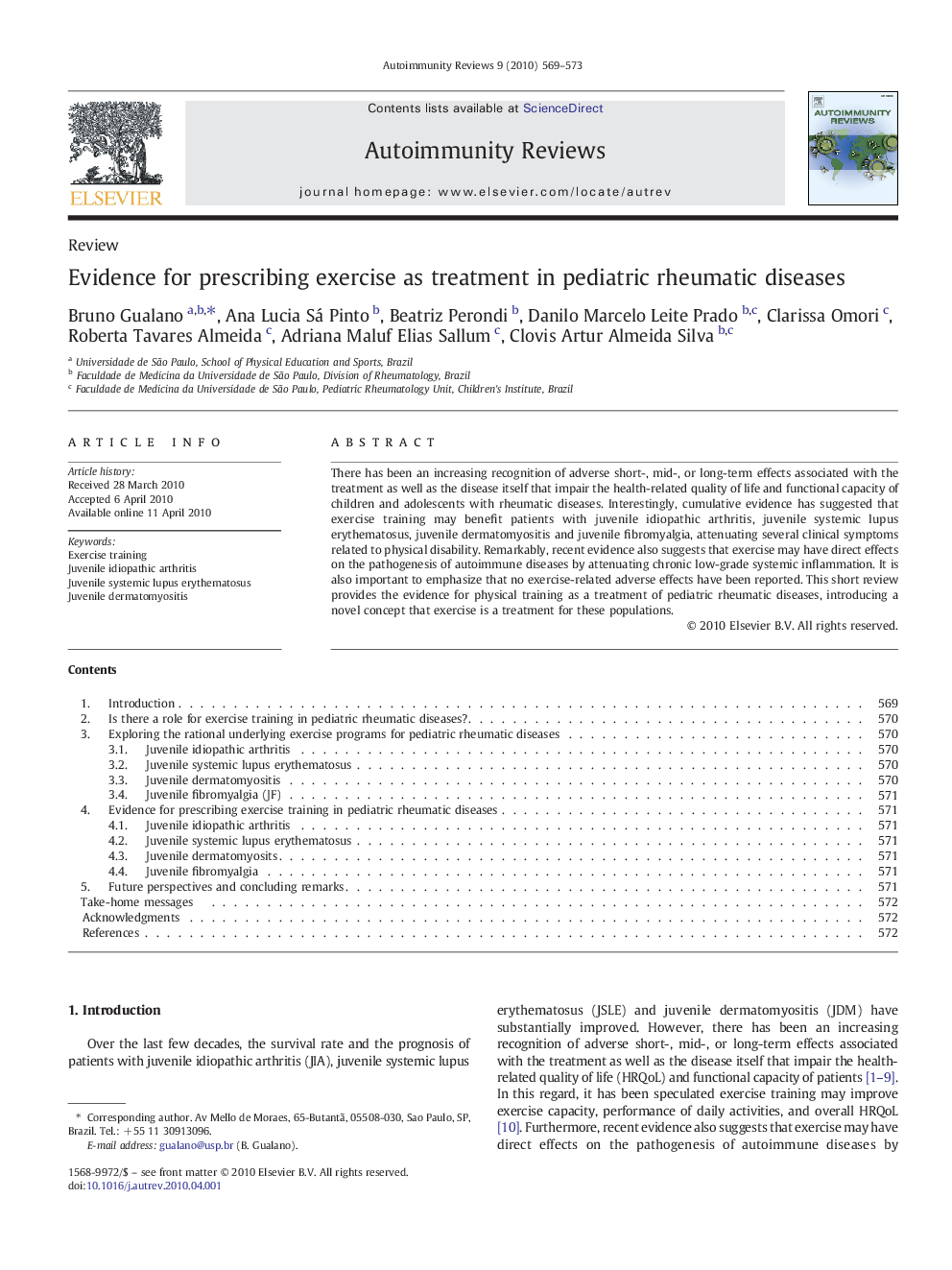| Article ID | Journal | Published Year | Pages | File Type |
|---|---|---|---|---|
| 3342314 | Autoimmunity Reviews | 2010 | 5 Pages |
There has been an increasing recognition of adverse short-, mid-, or long-term effects associated with the treatment as well as the disease itself that impair the health-related quality of life and functional capacity of children and adolescents with rheumatic diseases. Interestingly, cumulative evidence has suggested that exercise training may benefit patients with juvenile idiopathic arthritis, juvenile systemic lupus erythematosus, juvenile dermatomyositis and juvenile fibromyalgia, attenuating several clinical symptoms related to physical disability. Remarkably, recent evidence also suggests that exercise may have direct effects on the pathogenesis of autoimmune diseases by attenuating chronic low-grade systemic inflammation. It is also important to emphasize that no exercise-related adverse effects have been reported. This short review provides the evidence for physical training as a treatment of pediatric rheumatic diseases, introducing a novel concept that exercise is a treatment for these populations.
